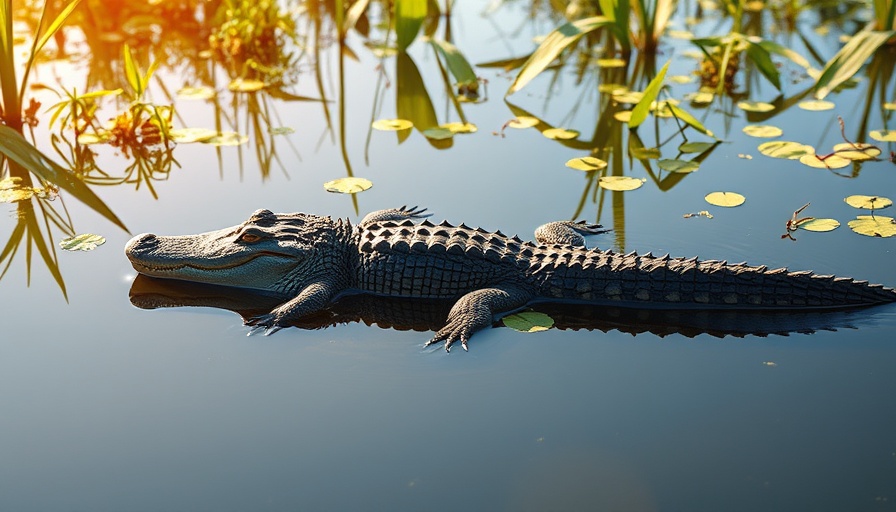
Major Alligator Attack in Florida: A Tragic Incident
The Florida wildlife community is in shock following the tragic alligator attack that claimed the life of 61-year-old Cynthia Diekema on May 27, 2025, during a canoe trip at Lake Kissimmee State Park. Diekema was attacked by an 11-foot alligator, prompting urgent calls for public awareness regarding alligator safety. Witnesses say her husband was helpless during the attack as the alligator performed a violent death roll before swimming away with the victim.
Understanding Florida's Alligator Population
Florida is home to approximately 1.3 million alligators, making it one of the states with the highest concentration of these reptiles. With recent population growth leading to more residents living near water, the likelihood of human-alligator interactions has increased. Matthew Nichols, coordinator of the Florida Fish and Wildlife Conservation Commission’s alligator management program, emphasized the need for vigilance, stating, "Because alligators can be found in nearly any water in Florida, it’s safest to always assume they’re present. "
Concerted Efforts for Alligator Awareness
In response to increasing human-alligator conflicts, the Florida Fish and Wildlife Conservation Commission has launched a partnership with GatorWise, aimed at promoting realistic perceptions about alligators and providing educational resources to the public. The goal is to foster coexistence between humans and these formidable reptiles. This campaign comes at a critical time, as alligator bites have decreased from 23 in 2023 to 11 in 2024, indicating that education efforts may be making an impact.
Sharing the Habitat: The Role of Alligators in Ecosystems
Alligators play a critical role in the wetlands ecosystem of the southeastern United States, contributing to the health and balance of these habitats. They help control fish populations and provide a nursery habitat for other species by creating and maintaining the necessary conditions in swamp ecosystems. Their decline could lead to widespread consequences for biodiversity. It's essential for locals to understand the importance of these animals and how to respect and coexist with them.
Contributing Factors to Wildlife Conflict
The increase in conflicts with alligators reflects a broader trend in wildlife-human interactions. The 73% decline in vertebrate populations over the last 50 years, attributed primarily to human activities, highlights the urgency of creating effective strategies to minimize wildlife confrontations. Issues such as habitat loss, pollution, climate change, and overexploitation underscore the gravity of protecting Florida's fragile ecosystems. By engaging with the community through awareness campaigns like GatorWise, officials aim to mitigate these conflicts.
The Importance of Community Education
Informing the public about the native wildlife and its behaviors is crucial, particularly when it comes to dangerous encounters. With many outdoor enthusiasts frequenting areas inhabited by alligators, it's vital that residents and visitors alike are educated on safety protocols when near water. Understanding common misconceptions—such as viewing alligators solely as a threat rather than an essential part of the ecosystem—can also foster a more harmonious relationship between humans and nature.
Moving Forward: Coexisting with Wildlife
As residents of Florida navigate the complexities of living amongst abundant wildlife, cultivating respect for alligators and raising awareness about their behaviors is paramount. The tragic loss of Cynthia Diekema is a stern reminder of the potential dangers and the necessity for increased public education and awareness. We can honor her memory by advocating for coexistence efforts that ensure both human safety and the preservation of our unique wildlife.
Join the conversation about wildlife coexistence in Florida and support initiatives that educate the public about alligator safety and conservation. Together, we can work towards a future where both humans and alligators can thrive in their shared environments.
 Add Row
Add Row  Add
Add 




 Add Row
Add Row  Add
Add 

Write A Comment